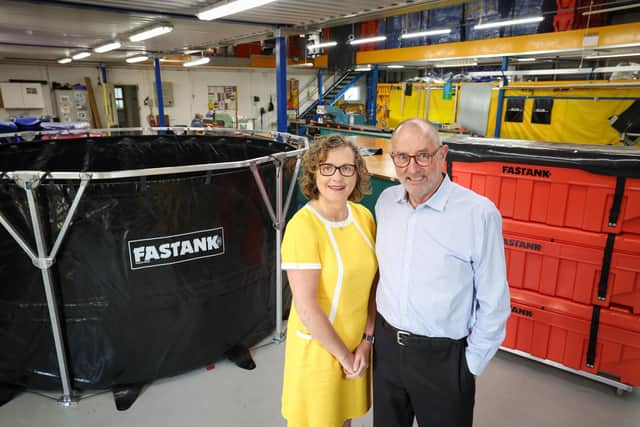Northern Ireland company poised to support UN in environmental relief operation dubbed ‘ticking time bomb’
and live on Freeview channel 276
A Northern Ireland company is working alongside the United Nations to help prevent a humanitarian and environmental disaster in the Red Sea, in what the organisation has deemed a “ticking time bomb”.
Antrim firm Fast Engineering Ltd is supporting the UN Development Programme, as well as the International Maritime Organization, by positioning their portable FASTANK containment units at the mouth of the Red Sea in the event of a loaded oil supertanker rupturing or exploding.
Advertisement
Hide AdAdvertisement
Hide AdFSO Safer, a floating storage vessel moored off the coast of Yemen, holds more than 1.14 million barrels of oil valued at up to $88 million. It has been held hostage, as a bargaining chip, since the start of Yemen’s civil war in 2015.


With the supertanker being in an advanced state of decay, it has the potential to create one of the biggest oils spills in history.
By comparison, FSO Safer has a capacity which is four times that of the 1989 Exxon Valdez oil spill in Alaska.
Seamus Connolly, managing director of Fast Engineering and inventor of FASTANK, explained how there would be ‘major implications for global trade’ should the worst happen.
Advertisement
Hide AdAdvertisement
Hide AdHe said: “Not only would shipping be prevented from using the Suez Canal, one of the world’s busiest trade routes, but humanitarian aid would also not be able to access Yemen ports. The fishing industry in the region would be decimated, with a loss of thousands of jobs and countless animals would die. Clean-up operations would take decades, with current estimates upwards of $20 billion.”
Fast Engineering was asked to urgently air freight the entirety of their FASTANK stock to Djibouti, located across the narrow straights from where the FSO Safer is moored.
Mr Connolly added: “The supertanker is in a precarious condition due to neglect. A salvage operation is about to get underway, which means the stresses in the Safer’s structure will change, increasing the risk of rupture and resulting sparks could start an inferno. Teams of specialist responders from around the world are on standby with their FASTANK containment units to temporarily store and treat any spilled oil.
“It is reassuring to know that there are many working tirelessly to respond in the event of such a disaster. This highlights the importance of our environment and the need to invest in sustainable practices to prevent such catastrophic events from occurring in the first place.”